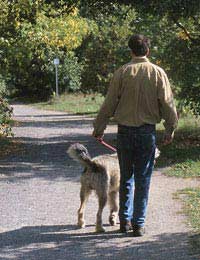Beating an Addiction to Exercise

Exercise occurs when the individual places most of their emphasis on the exercise routines. The thought of missing a session or spending time on other activities becomes frustrating and disappointing even to the point of becoming angry. Exercise addiction becomes the focal point of everyday life coming before family, friends and employment. It is often associated with eating disorders as weight and calories become an issue.
How Does It Happen?
It is a rare disorder but can occur as people find themselves achieving a ‘high’ after exercising. This grows into feelings of self appreciation when completing a punishing regime. The feeling of euphoria gradually becomes less and less until the routine becomes a gruelling task that MUST be achieved to gain satisfaction.Exercise addiction is becoming increasingly accepted as a legitimate addiction and experts are finding convincing research indicating that the effects on the brain are very similar to those experienced by sufferers of substance addiction.
Beating The Addiction
As with all addictions, motivation and determination are key to achieving success.Keep a strict diary to see when exercise is taken; it helps to see it in black and white how much exercise is being done.Decide on activities to fill your spare time and STICK to them.
It is very difficult to overcome any addiction without some external help so seek counselling if needed, also speak to your GP about managing depression and anxiety. Giving-up an addiction can cause feelings similar to bereavement.
Try deep relaxation or meditation for helping manage stress. This will also help to control breathing and regulate the heart rate and manage anxieties caused by giving-up your addiction.
Try amending your exercise routine to other unfamiliar activities such as yoga or pilates; these are less demanding exercises that will also help introduce you back into a social circle.
Take every day individually and congratulate yourself for each day that you have control over your exercise regime.
Distance yourself from like-minded individuals who may be unsupportive and want you to continue training.
Set realistic goals and reward yourself every time you achieve one.
Do not weigh yourself more often than once or twice a month.
Re-educate your mind to issues of pain; pain exists to tell us something is wrong. Most injuries are exacerbated by heavy exercising; most exercise addicts ignore their pain.
Take walks in the fresh air, borrow a friends dog or children so running is not optional. Make these occasions pleasurable and educational, stopping to take photos, draw pictures or discuss nature. This is a perfect way of keeping fit and enjoying quality time.
Talk to your Gym and find out about other classes or team sports you can play when you have overcome your addiction. This way, efforts are limited and training is done at set times as a team. This is also good for your social life.
Taking the Addiction to Exercise Seriously
Exercise addiction can be as worrying a problem as substance abuse and should be taken just as seriously. Severe injuries can result from over-exercising as most sufferers punish themselves for experiencing pain and work thorough it and ignore it.As with all addictions, therapy from a qualified professional may be the most beneficial option if self-help measures are failing.
- What is Work Addiction?
- The New Addiction: Romantic Rejection
- Addiction to OTC Nasal Sprays
- Gambling and Society
- Addiction to Shopping
- Dealing With An Addiction To Self-Harm
- Sugar Addiction
- Beating an Addiction to Sex
- Stopping Eating Disorders
- Beating an Addiction to Food
- Beating An Addiction To Gambling
- What is Codependency?
- Beating an Addiction to Drugs
- Beating an Addiction to Pornography
- Beating an Addiction to Chocolate
- Beating an Addiction to Illegal Drugs
- What is a Casual Addiction?
- Beating an Addiction to Computers
- Beating an Addiction to Caffeine


Re: Addiction to Shopping
Hi, I came to realize that I have shopping addiction and it’s getting out of control. I need help but I don’t know where to start. I would…
Re: Beating an Addiction to Pornography
I am in a long term relationship and have a fulfilling sexlife, but i struggle with porn, i feel the need and temptation…
Re: Offering Support to an Addiction Sufferer
My big sister died of a brain tumor then 6 week later my mum went too . I have multiple myeloma and am terminal.…
Re: Addiction to Shopping
I am now at my whits end, my husband is spending money like it has gone out of fashion, and now i am homeworking, I take in the deliveries…
Re: How to Assess The Level of an Addiction
Over a series of many years I have discovered that I have an addicted personality, it has never worried me too much…
Re: How to Assess The Level of an Addiction
Over a series of many years I have discovered that I have an addicted personality, it has never worried me too much…
Re: Offering Support to an Addiction Sufferer
I am an addict and I have just separated from my husband of 16 years as we together developed a cocaine problem.…
Re: Recognising Alcohol Addiciton
Ever since I can remember, I've always overindulged before/during social events. It's got to the point where I've been hateful to…
Re: Beating an Addiction to Chocolate
I suffer from anxiety and mild depression. As a stay at home mum I find myself bored sometimes and truthfully stressed. My…
Re: Offering Support to an Addiction Sufferer
Hi im dpeaking on behalf of my partner , who has a bad alcohol addiction..And this has been going on for neaely…